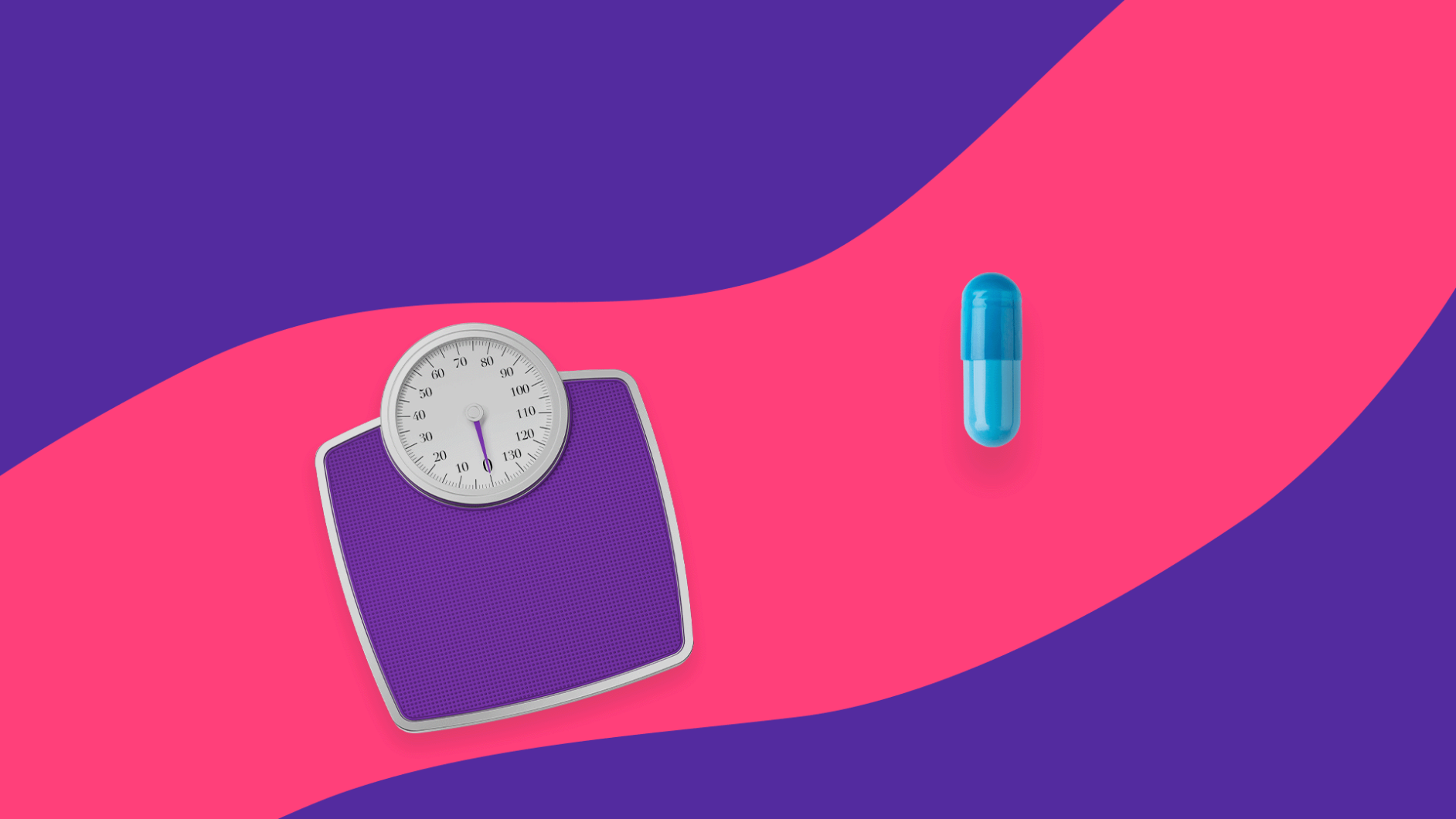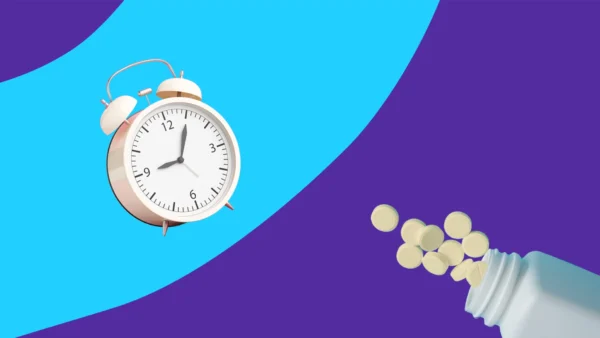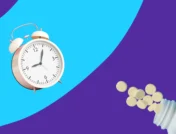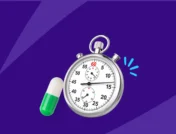Losing weight is a marathon, not a sprint—a long and arduous marathon, sometimes, depending on how much weight you want to lose, and many people look for medications to aid in the process.
Take stimulant medications for conditions like attention-deficit/hyperactivity disorder (ADHD) or narcolepsy, for example. Since weight loss is often noted as a possible side effect, some people try to use stimulants like Adderall (amphetamine/dextroamphetamine) to reach their weight loss goals. In fact, says Bruce Bassi, MD, an addiction psychiatrist at TelepsychHealth, Adderall was one of a few stimulants prescribed to people in the ‘70s and ‘80s for weight loss, as it was believed to increase metabolism and decrease appetite.
But just because it was done in the past doesn’t make it safe; today’s experts generally recommend avoiding the use of Adderall for weight loss, not only because it’s not effective for this purpose but because it comes with some definite risks. Here’s what you need to know.
Does Adderall make you lose weight?
One of the possible side effects of Adderall is weight loss, along with other common side effects like fast or irregular heartbeat, anxiety, and dry mouth.
Adderall is a stimulant drug used for treating symptoms of attention-deficit/hyperactivity disorder (ADHD), which means it’s not an FDA-approved weight-loss drug. While it’s true that a variety of prescription drugs are prescribed off-label to treat conditions other than what they were intended to treat, this is something that should only be done under the direct supervision of a healthcare provider. Unless you’ve received medical advice otherwise, it’s important to only use prescription medication for its intended purpose and follow all the recommended dosing instructions.
As far as Adderall goes, it’s not even the most effective type of stimulant for people dealing with obesity. Dr. Bassi says only about 36% of adults will experience a decrease in appetite that can lead to weight loss, and the extent of the decrease can vary from person to person. In other words, you might experience only a minimal amount of appetite suppression or weight loss on Adderall or even none at all.
The safety of using stimulant medications for weight loss is a widely debated topic, but if you and your provider agree it could be beneficial to you, it may be wiser to choose the weight loss drug phentermine.
“Phentermine has been a popular weight loss stimulant similar to Adderall because it has lower abuse potential,” Dr. Bassi says. Unlike Adderall, phentermine is not used to treat symptoms of ADHD; it’s often prescribed in conjunction with other (nonmedicinal) measures like diet and exercise, for short-term use, specifically to assist in weight-loss efforts.
Why does Adderall make you lose weight?
Adderall use increases the release of the neurotransmitters dopamine and norepinephrine in the brain, according to Barbara Kovalenko, RD, a nutrition consultant at Lasta. This can reduce feelings of hunger, cause loss of appetite, and increase energy levels. Because of these effects, Adderall can lead to a decrease in food intake and an increase in physical activity—especially when administered in too high a dosage.
This might not seem like such a bad thing, but there are risks to this type of weight loss. In kids, specifically, a suppressed appetite can lead to a lower intake of key nutrients needed for childhood growth and development. Some studies have also shown that kids on ADHD medications may fall behind their peers on the growth curve—although the good news is that this effect seems to be temporary, with those kids eventually catching up (even if they remain on medication).
Risks of Adderall for weight loss
There are dangers to using stimulants for any reason, but since Adderall is designed to treat central nervous system symptoms of ADHD, the side effects and risks can be exacerbated when stimulants are used for other purposes, including weight loss.
“Adderall is a controlled substance with a high potential for abuse and dependence, and its use should be strictly monitored by a healthcare professional,” Kovalenko says. “Additionally, long-term use of Adderall for weight loss can cause a range of negative side effects, such as insomnia, anxiety, irritability, heart palpitations, high blood pressure, and addiction.”
What’s more, adds Kovalenko, Adderall is not a sustainable weight loss solution in the way that a balanced diet and regular exercise can be. Misusing Adderall for weight loss can lead to a rebound effect once the medication is discontinued. In other words, your weight or body mass index will return to pre-prescription levels once you stop taking the drug.
Dr. Bassi emphasizes this warning as well, noting that whenever you stop taking Adderall, your appetite and metabolism will revert back to your baseline, reversing any weight loss that has been achieved. “Adderall is simply a Band-Aid fix for weight loss,” Dr. Bassi says. “Not only is it not a great long-term solution, but it has potential for side effects, the most common of which are insomnia and heart palpitations.”
How to maximize Adderall benefits
Most people taking Adderall for ADHD take it first thing in the morning so it can help them start their day with attention and focus. It takes about 30 to 45 minutes for Adderall to take effect, so you can also plan to take it about that long before you need it to be working; regular Adderall lasts for three to four hours, while Adderall XR, the extended-release form of the drug, works for about 10 to 12 hours.
Dr. Bassi says it doesn’t matter if you take Adderall with or without food, but for best results, avoid foods, beverages, or supplements that contain vitamin C since there is some evidence that vitamin C can hamper the absorption of Adderall.
Finally, while exercise is a proven strategy for reducing ADHD symptoms, you should try to time your workouts around your dosing: since Adderall can increase your heart rate, try to exercise before taking your daily pill to avoid additional side effects.











